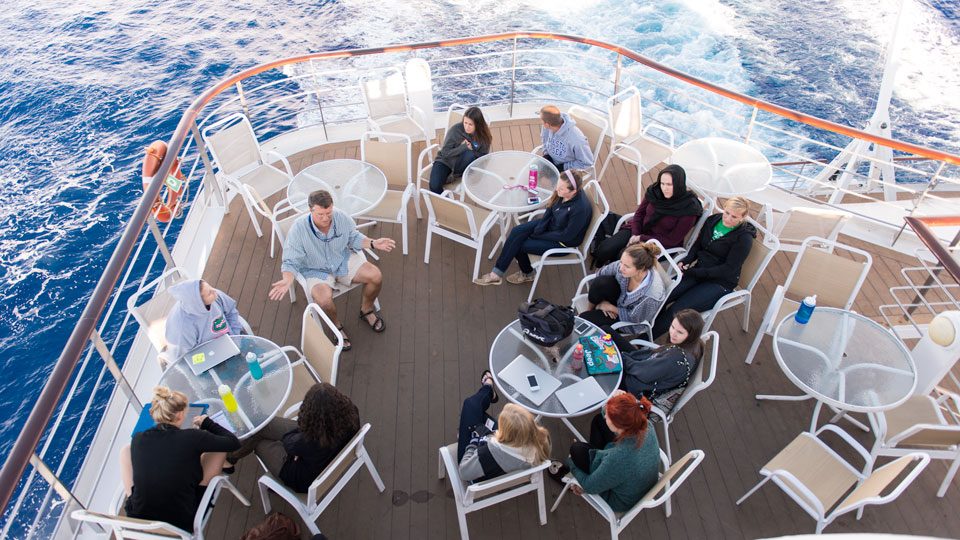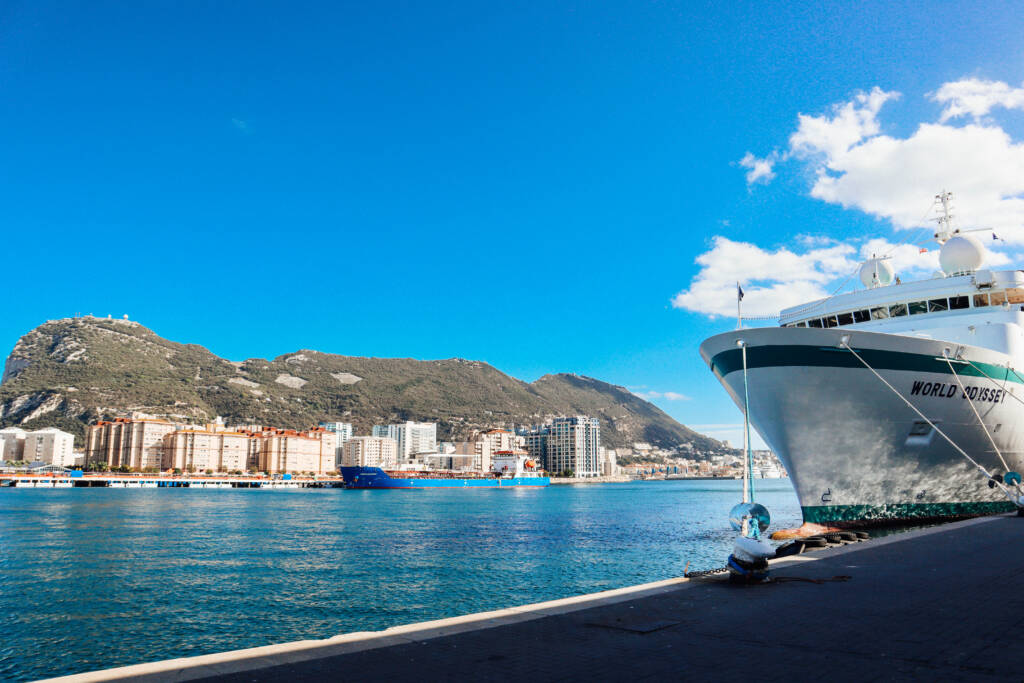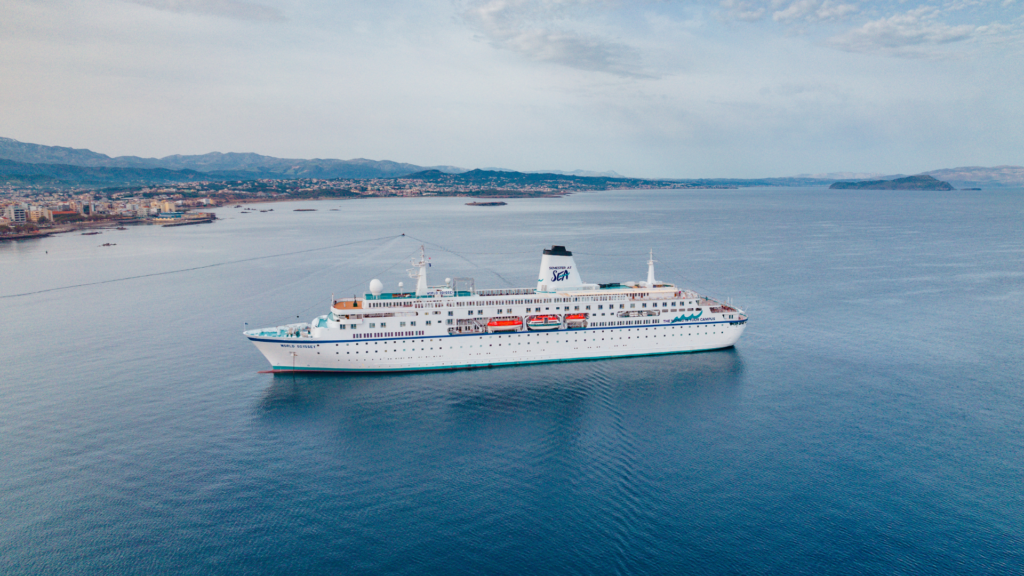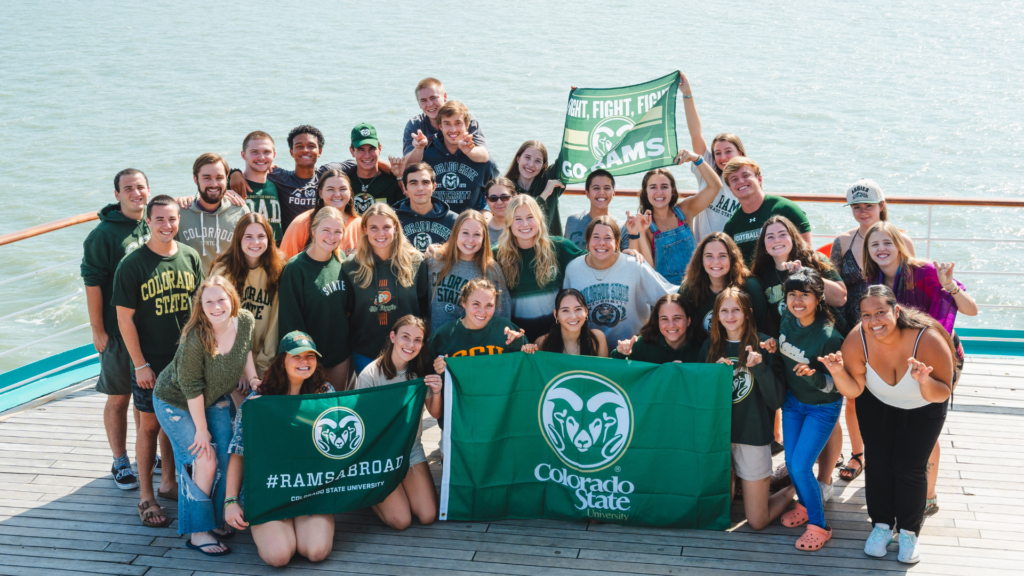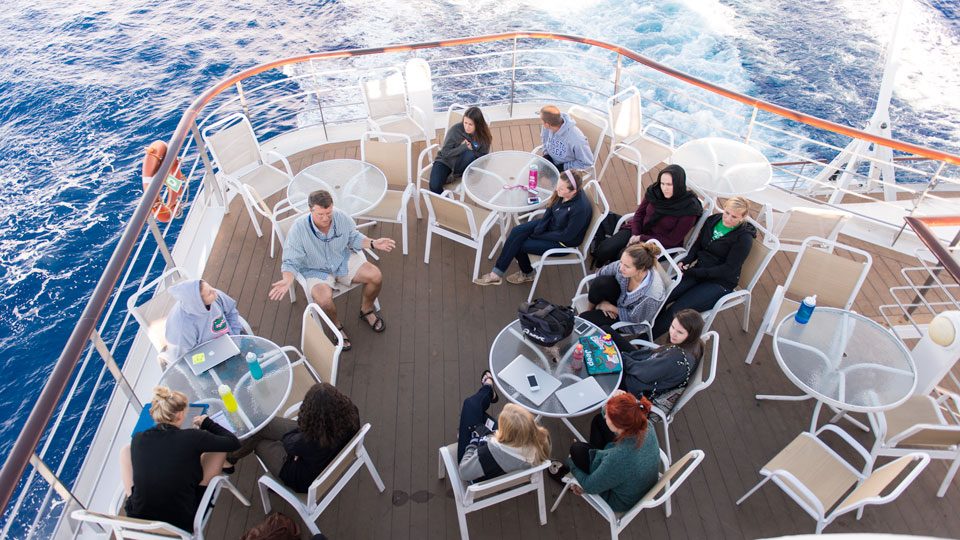
The beauty of studying on a ship in the middle of the Atlantic, and stopping in ports where marine life comes close to shore, are those in-the-moment teaching and learning opportunities.
That’s exactly what happened during, and just after, the MV Explorer docked in Cape Town, South Africa. While in Cape Town, the ship, its captain and crew, were instrumental in helping to save a one-year-old humpback whale that had become disoriented and wound up in Cape Town’s port, wedged between the dock and the ship.
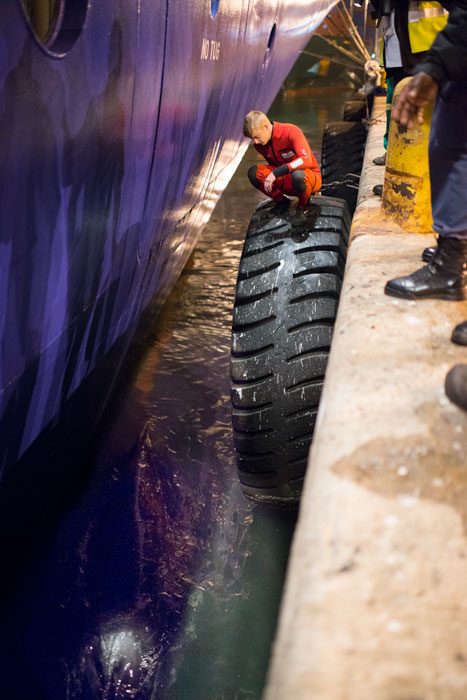
It took hours and lots of work by local Sea Rescue divers, the ship’s captain and crew (to move the ship with the help of tug boats without starting the engines and scaring the whale), other volunteers on the dock, and tug boats to coax and then guide the whale to the safety of open waters.
The whale’s rescue, and the MV Explorer‘s contribution, were chronicled in the local newspaper, the Cape Times. Just days later, the shipboard community spotted whales and dolphins at various times of the day during our transit along the Atlantic between Africa and South America. These and other marine life sightings have provided several teaching moments for Prof. Robert Young.
Young, a marine biologist at Coastal Carolina University, in South Carolina, is teaching marine biology and oceanography, on the Fall 2013 voyage. In addition to his classes, Young holds “A is for Atlantic” talks on occasional evenings, at the back of the ship, overlooking the ocean, to talk about the varied marine life that students are seeing off the side of the ship during the voyage.
“It’s always a little extra special to teach about a subject that you just saw off the side of the ship,” says Young.
When the ship was going through choppy waves during part of the voyage, students in Young’s class took wave measurements to learn more about waves. But the evening talks are open to anyone, students who couldn’t get into his classes, interested faculty and staff and lifelong learners. And Young tailors the discussions to the current issue.
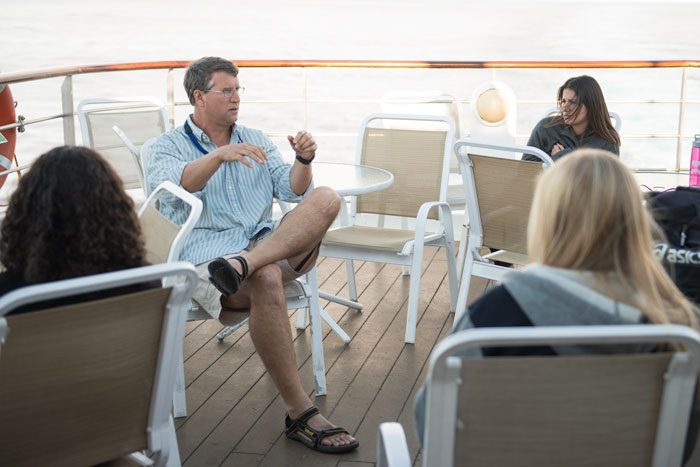
For example, when the shipboard community was seeing lots of fur seals playing in the ocean as we neared South Africa the discussion turned to the future of the fur seals, especially with great white sharks in the Cape Town area and the fact sharks feed on the seals.
After the whale rescue in South Africa, it seemed appropriate to talk about “lost” whales and their chances of surviving. During the talk, Young explained that young whales that are at the early stage of becoming independent sometimes get disoriented, but if they can find their way back to open water and a group of whales to follow they’ll be fine. That’s the case, he said, with “the ship’s whale” (as it has been dubbed by students on the voyage).
“In South Carolina we get 50-60 strandings a year and every now and then we have to rescue a young one who’s out of its habitat,” Young explained.
“It’s really wild to be sitting here on the ship, traveling along the ocean and looking out at the ocean at the same time that you’re learning about what’s happening in the ocean. You really are kind of learning on the spot,” said Tiffany Panaccione of Arizona State University, who was sitting in on one of Young’s recent talks.
As a first-time voyager, Young has experienced a number of new things as well, one of them being the in-the-moment learning and the other being on the other side of the equator. Said Young: “I’ve never been on the southern hemisphere and crossing the ocean like this so this is special for me.”
